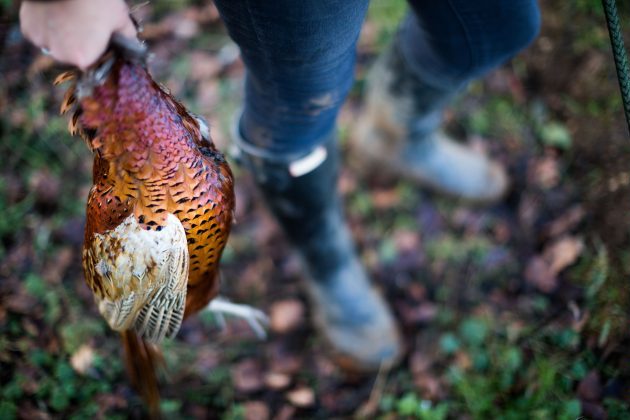Scotland puts game-shoot licensing back on the table
Licensing for Scottish game shooting is back under consideration, but fieldsports groups argue that wildlife can be better protected through tougher penalties.

Mandatory Credit: Photo by John Alexander/robertharding/REX/Shutterstock (5575343a) Game-shooting detail, Oxfordshire, England, United Kingdom, Europe VARIOUS
Scottish fieldsports groups have expressed their dismay over the Scottish Parliament’s decision to explore the introduction of game-shoot licensing.
Last month, the Environment, Climate Change and Land Reform Committee voted narrowly in favour of examining a possible licensing scheme to tackle wildlife crime in the country. And cabinet secretary Roseanna Cunningham this week confirmed that she will establish an expert group to look at grouse moor management, including the option of licensing shoots, based upon the committee’s recommendations.
Petition calls for licensing
The committee vote came after a petition was lodged on behalf of the Scottish Raptor Study Group, calling for a state-regulated system of licensing to address the “potentially adverse environmental impact of game-bird hunting”.
In a joint statement, BASC Scotland, the Scottish Countryside Alliance, Scottish Land & Estates, the Scottish Gamekeepers Association, the Scottish Association for Country Sports and the Scottish Moorland Group shared their disappointment at the vote, particularly because it came, they said, “at a time when the level of wildlife crime — according to Government statistics — is at a historically low level”.
Committee members will now advise Ms Cunningham that the Scottish Government should explore the need for and potential benefit of such a licensing system, how it might operate in practice, what it might encompass, how it could be appropriately enforced and whether such a system might be trialled in a specific area.
However, they will also note the proposals put forward by the shooting community, including tougher penalties for those convicted of wildlife crime, and keep the petition open for now.
Tiny minority of criminals
The joint statement from the fieldsports groups questions how useful licensing will be in tackling such crimes. “It is widely acknowledged across the political spectrum that only a tiny minority of people engages in wildlife crime and further regulation will impact on communities where game shooting is of vital social, economic and environmental importance,” it said.
“It was also demonstrated throughout the committee’s evidence sessions that licensing is not a definitive solution, with intolerable instances of crimes against birds of prey still existing in European countries with a licensing system in place.”
Despite their disappointment at the vote, the groups said they were “heartened” that members of the committee were positive about the shooting community’s set of proposals, which they said if taken forward “could have a significant impact in helping to eradicate wildlife crime for good”.
The joint statement from the groups continued: “That is the objective we all want to achieve and we believe that a potent combination of punishment and prevention is the most effective way forward. Significant progress has been made and this should be built upon.”








